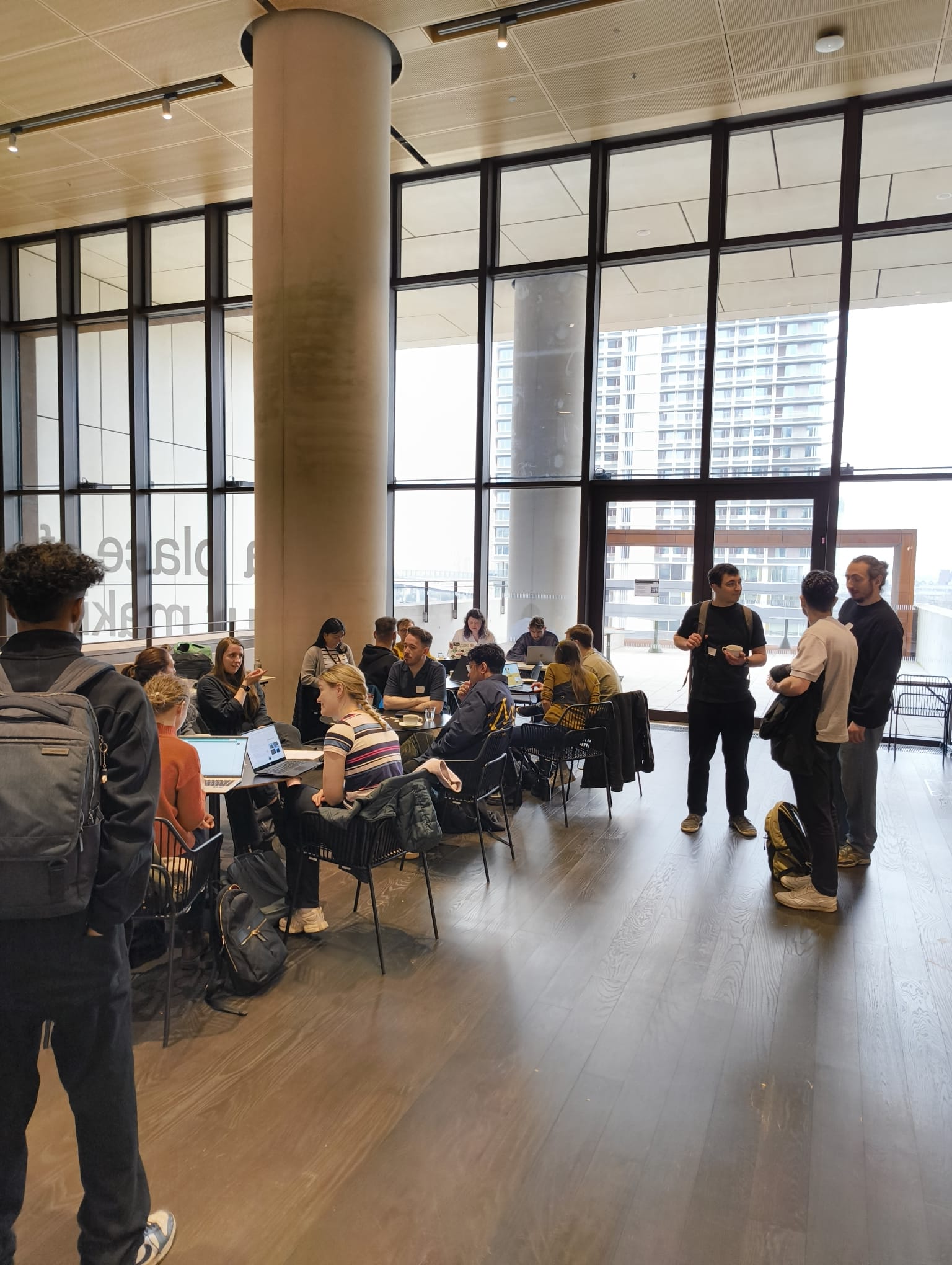nf-core hackathon London

Last week, we organised a local site for the 2025 nf-core Hackathon in London with great success. nf-core Hackathons are events held every year, where Nextflow enthusiasts from all over the world join forces to hack together, building community and connections, and collaborating on new or existing projects. This year’s spring Hackathon was held across multiple local sites worldwide, hosted by Nextflow experts and nf-core members. These communities also had the opportunity to connect online and collaborate on joint projects.
We proudly hosted dozens of Nextflow experts – and those curious but not very experienced – at the University College London (UCL) East campus, for three days of hacking, making our local site the largest one. Participants included academic researchers from UCL, Queen Mary University, and King’s College London, as well as professionals from the public service and industry.
At the hackathon, attendees could choose projects based on their interests, whether that means contributing to existing nf-core pipelines, updating or adding new nf-core modules, or making smaller but significant contributions to the community. At our site, we formed groups around these interests, with the nf-core/chipseq pipeline – already a widely used tool for ChIP-seq analysis – attracting the largest number of participants. nf-core/genomeqc, a poject started by Eco-Flow to assess the quality of assembled genomes and still in development, also attracted a significant number of hackers. Other participants worked on adding new modules to nf-core.
We also took this event as a chance to re-start the nf-core/gwas project, which had been inactive for quite some time, teaming up with fellow Nextflow users interested in Genome-Wide Association Studies.
As mentioned, some participants were new to Nextflow and nf-core but were curious about how these tools might benefit their research. For these participants, on the first day, we gave a short introduction to nf-core, focusing on its support for modularity and reproducibility. We showed them how nf-core modules work and how they are integrated into larger workflows. Since some participants were also new to collaborative platforms like GitHub, we did a brief demo introduction on how to use Gitpod and GitHub Codespaces to add or make changes to existing modules, submit pull requests, review contributions, and merge changes. By the end of this introduction, with our guide, they were ready to start contributing to the nf-core community or start their own personal projects.
But it wasn’t all hacking — we made time for social activities too. On the first day, we had pizzas for lunch provided by nf-core team, and we later headed to the pub to grab a few pints. On the second, a few brave hackers took on the world’s longest tunnel slide, the Helix at the ArcelorMittal Orbit. And on the final day, some of us joined for an early morning jog followed by a swim at the London Aquatics Centre.
Overall, the London nf-core Hackathon was a fantastic opportunity to learn, collaborate, and connect. Participants not only contributed to pipelines and the nf-core community, but also built connections, shared experiences and had fun. We’re very happy with the event’s success, and hope it was the start of a thriving London nf-core community!